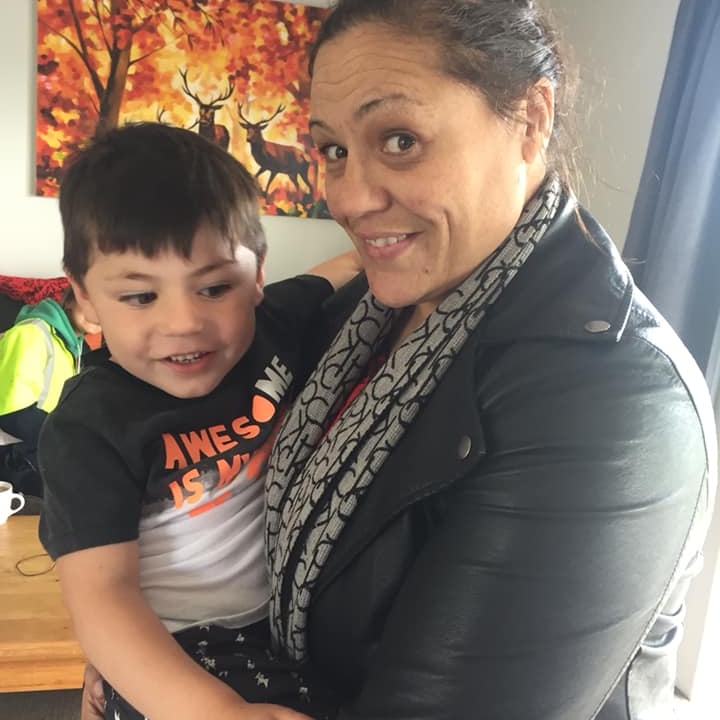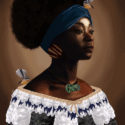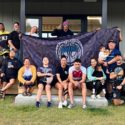Mere Baker (Ngāti Porou, Ngāti Kahangungu) is a visionary sportswoman from Murihiku (Southland) with a remarkable international rugby career to date as a player, coach and sports administrator. She is also the powerhouse behind the newly minted Hapori Project, a Southland based coaching, cultural and life skills programme.
With good reason then, Mere Baker is regarded by many as an inspirational leader – a kahukura. Pare Mafi, E Tū Whānau kaimahi and fellow Black Ferns Sevens teammate, says Mere has done more to promote the status of women’s rugby internationally than anyone else she knows.
“Mere is one of the greatest connectors of women’s rugby in the world,”
Pare Mafi
Mere Baker advocates for positive change
Born and raised in the small town of Riverton, Mere is a down-to-earth woman. Through sheer grit and determination, she developed personal and professional skills while working to put herself through university.
“I’d lost focus. I wasn’t active and I’d put on weight, so I started playing touch rugby to get in shape,” she says.

Mere Baker with her nephew, Hoani
In 2000, Mere debuted with the Aotearoa Māori Women’s Sevens. She then embarked on a decade-long career as an internationally renowned athlete and coach. This saw her playing professionally in Europe, Australia and in the States under contract to the Washington DC Furies. She returned to Invercargill at the beginning of 2019 to take up the position of Women’s High-Performance manager with Rugby Southland.
Mere loved being home but was surprised, and saddened, to encounter paternalistic and racist attitudes towards female and Māori sportspeople. She was even more frustrated by a lack of support for the kind of grassroots sporting activities that build resilience in young people and strengthen the communities they live in.
That propelled her to team up with people like Tiki Edwards from Māori Rugby’s E Tū Toa programme to create the Hapori Festival. This is a day-long coaching, cultural and life skills initiative for rangatahi and their extended whānau. It goes way beyond teaching rugby skills.
“Rugby was the drawcard but it is just one of four strands to this kaupapa. The other three are nutrition, wellbeing and tikanga Māori,” Mere says.
Hapori Festival – more than just rugby
The Hapori Festival team wanted to inspire young Māori and their whānau to take an interest in how their bodies work and how they can maintain their health. They knew that if they were to attract whānau to the event, it had to be conducted within a Māori kaupapa.
“We wanted them to come together to talk about being Māori, to understand what it is to be indigenous to this country, and to walk away with pride in themselves and their culture.”
Mere Baker
Around 50 rangatahi and 40 whānau and volunteer workers turned up for the first Hapori Festival, which was held in September at the Blues Rugby Club in Invercargill.
Attendees were given plenty of physical training and opportunities to learn rugby skills. The Festival’s schedule also included haka wānanga, and workshops on nutrition, healthy eating, weight management and financial skills.
“Sport is a vehicle to get people to events like this. If we have other things going on, people take notice. If they’re relevant enough, whānau will pick up ideas and information that interests them without feeling pressured or lectured to.”
Mere Baker
The success of the first Hapori Festival has organisers considering running two festivals in 2021, including one in Dunedin. They are also looking to include other sporting codes, especially rugby league because of the strong support it has from Māori whānau.
Want to know more about E Tū Whānau?
Read about E Tū Whānau kaupapa, vision, and values.
Read Mahere Rautaki (Framework for Change 2019 – 2023), or access free E Tū Whānau resources.
Join the E Tū Whānau communities on Facebook, Instagram and YouTube.
Sign the Charter of Commitment and our Pānui.



